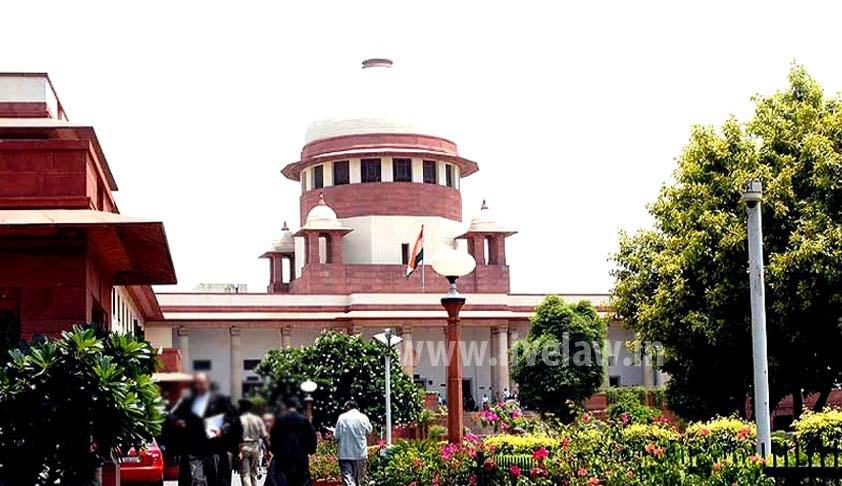Courts Cannot Reduce Minimum Sentence Prescribed Under SC/ST Act: SC

Image Coutesy: Live Law
When it is a common perception that courts in India, by and large, are lenient towards those who have committed offences and atrocities against members of Scheduled Castes, dalits and adivasis, when this perception of acute bias has given way to severe misgivings about the very fundamentals of access to justice, here comes a Supreme Court ruling which could go a long way in ridding the society and polity of this perception.
On February 8, in the case of State of Madhya Pradesh v Vir Das, a bench of Justices DY Chandrachud and Hemant Gupta have ruled that where the statute prescribes a minimum sentence for an offence, it would not be legal for the court to use its discretion to reduce the sentence below the minimum.
The ruling comes in a case where the respondent was convicted under Section 3 (1) (xi) of the SC/ST Atrocities Act for molesting a dalit woman. He was convicted by both the trial court and the high court, and did not challenge his conviction. However, he appealed against his sentence of minimum six months imprisonment, and the high court, on appeal, reduced the sentence to the period of incarceration already undergone (three months), but increased the amount of the fine. Realising that this would set a dangerous precedent, especially in cases where sexual offences are committed against members of Scheduled Castes or Scheduled Tribes, the government approached the Supreme Court.
Absence of Discretion
The judges went by the precedents set in two cases. The first case is that of Narendra Champaklal Trivedi v State of Gujarat, in which the court held that even under Article 142 of the Constitution, which allows the Supreme Court to “do complete justice” and gives it untrammelled plenary powers, it is not open to reduced the sentence below a minimum prescribed by the statute. The court had said:
“….we may refer with profit to the decision of this Court in Vishweswaraiah Iron & Steel Ltd. v. Abdul Gani (1997) wherein it has been held that the constitutional powers under Article 142 of the Constitution cannot, in any way, be controlled by any statutory provision but at the same time, these powers are not meant to be exercised when their exercise may come directly in conflict with what has been expressly provided for in any statute dealing expressly with the subject. It was also made clear in the said decision that this Court cannot altogether ignore the substantive provisions of a statute.”
The second precedent was the case of Mohd Hashim v State of UP & Ors (2017) in which the appellant was convicted under for an offence under Section 4 of the Dowry Prohibition Act,1961, providing for minimum sentence of six months and the high court had reduced the sentence and allowed the availing of the Probation of Offenders Act. The apex court found this to be wrong. The court held that if the legislature has prescribed a minimum sentence, then there is no room for the court to use its discretion to reduce it and apply the provisions of the Probation of Offenders Act. The bench said:
We may further elaborate that when the legislature has prescribed minimum sentence without discretion, the same cannot be reduced by the courts. In such cases, imposition of minimum sentence, be it imprisonment or fine, is mandatory and leaves no discretion to the court. However, sometimes the legislation prescribes a minimum sentence but grants discretion and the courts, for reasons to be recorded in writing, may award a lower sentence or not award a sentence of imprisonment.
Such discretion includes the discretion not to send the accused to prison. Minimum sentence means a sentence which must be imposed without leaving any discretion to the court. It means a quantum of punishment which cannot be reduced below the period fixed.
If the sentence can be reduced to nil, then the statute does not prescribe a minimum sentence. A provision that gives discretion to the court not to award minimum sentence cannot be equated with a provision which prescribes minimum sentence. The two provisions, therefore, are not identical and have different implications, which should be recognised and accepted for the PO Act. “
Making Amends
Last year, the Supreme Court in the Kashinath Mahajan case diluted the SC/ST Atrocities Act by directing that the police have to conduct a preliminary investigation before registering offences, so that “false cases” are not filed. As this writer had written at that time, the apex court ruling , which led to massive protests all across India, the apex court’s ruling had exposed the judges’ blindness to the socio-political reality of caste atrocities. This led to the government in August last year bringing in a constitutional amendment to nullify the top court ruling and add more teeth to the law.
One hopes the Supreme Court, by the present ruling, is trying to make amends for its previous judgement and the severe backlash it faced because of that.
The writer is an independent journalist based in Delhi, and specialises in reporting on legal, human rights and gender issues. The views are personal.
Get the latest reports & analysis with people's perspective on Protests, movements & deep analytical videos, discussions of the current affairs in your Telegram app. Subscribe to NewsClick's Telegram channel & get Real-Time updates on stories, as they get published on our website.
























